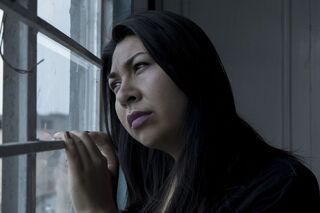Loneliness
Overcoming Loneliness While Social Distancing
Even as COVID-19 restrictions ease, you might still struggle with loneliness.
Posted May 25, 2020

Though COVID-19 restrictions are easing, many people continue to feel lonely with social distancing still in place and, for many, lockdown continuing. The loneliness often gets entangled with feelings of sadness, purposelessness and hopelessness. With those feelings, you may then find that depression and anxiety take hold. If this is the case, then it’s essential that you take steps to free you from this emotional prison.
Some ways that you can overcome your loneliness are:
Make the best of life as it is. Being separated from family and friends – and even the random people you’d come across as you go through your days – is not the way you want to live your life. But remember that this is not forever, even if it feels that way. Instead of replaying all the ways that this pandemic has made you suffer, choose to put this situation in perspective by paying attention to some of the positives in your current life. You might observe that you have connected with old friends you have not spoken with in years. You might also be enjoying some close moments with your partner or family – ones that would not happen often in “normal” life. As you notice some good things, consider the ways that you can choose to find connection and enjoyment in life as it is now – and then do what you can to make it happen.
Remind yourself that you are not alone in feeling lonely. Many people feel this way in “normal” life, and now the feeling has become an epidemic along with the COVID-19 pandemic. Knowing this won’t automatically fill you with a sense of connection, but it can help to be aware that your feelings are part of the human experience.
Offer yourself compassion. Just as you would feel caring and compassion toward someone you love who is struggling with loneliness, practice seeing yourself in the same way. If you tend to be self-critical or callous toward your own pain, observe that reaction. Then tell yourself to refocus on the pain of feeling lonely; and offer a caring response, such as, “It’s awful to feel so alone. I’m really sorry you feel this way.” As you say this, it might help to hold your hand over your heart.
Make plans to socialize. It may be easier to get lost scrolling through social media or zoning out to TV, but this isolates you from personal contact, ultimately leaving you to feel that much more alone. Instead, choose to reach out to other people. You might share your loneliness with someone you know will be supportive and encouraging. Or, you could just connect with people to chat, have a virtual happy hour, or play online games. Even if you can’t fully enjoy these activities, interacting can help keep you from falling further into a hole, and it might even help you to pull out of it.
Despite your attempts to follow these suggestions, you might not be able help yourself feel better. There are a lot of reasons this might be the case. If you struggled with loneliness before the pandemic, social distancing is likely aggravating the issue and maybe making it a bigger problem than you can handle on your own. Or, despite telling yourself that your friends are there to help, you might be too concerned that you will upset them – or not get an empathic response from them – by sharing your difficulties. In these situations, consider reaching out for professional help. A therapist might offer just the kind of support and guidance you need to get through this especially difficult time– as I explain in detail in the article, Emotionally Overwhelmed? How Therapy Can Help.
Whatever your particular situation, use the above suggestions to lessen your loneliness and reconnect you with family and friends. In doing so, you will feel released from your emotional prison, freeing you to again feel a sense of connection and joy in your life.
If you would like to learn more about this topic, check out this brief video:
Making Change blog posts are for general educational purposes only. They may or may not be relevant for your particular situation; and they should not be relied upon as a substitute for professional assistance.
Making change through compassionate self-awareness


